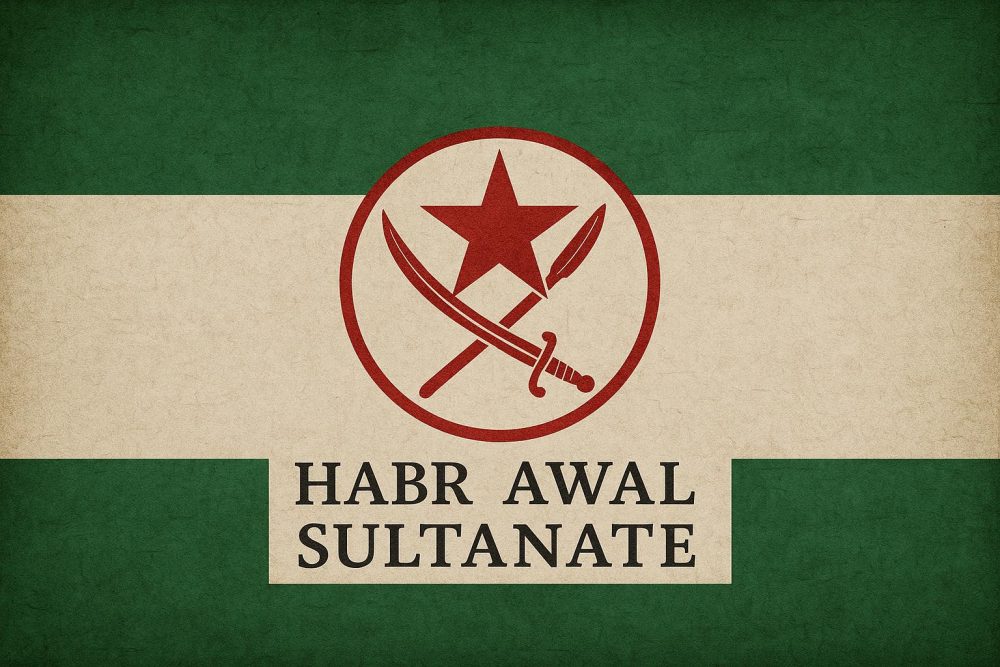
The Habr Awal Sultanate: An Overview
The Habr Awal Sultanate was a notable entity within the historical milieu of the Horn of Africa, a region known for its rich interplay of cultures, trade, and political systems. Stretching across parts of what is now recognized as Somaliland, this Sultanate maintained a sophisticated socio-political structure while actively engaging in trade and diplomatic relations with nearby regions, leaving a lasting imprint on the history and culture of East Africa.
Geographical Context
The geographical positioning of the Habr Awal Sultanate endowed it with immense strategic importance. Nestled along the bountiful Gulf of Aden, the Sultanate benefited from maritime access that was crucial for trade activities. The Gulf of Aden was not merely a waterway; it was a corridor that conjoined the African continent with the Middle Eastern and Indian worlds. The ability to connect to these distant lands fostered an expansive trade network pivotal for regional exchanges. Such maritime routes enabled the import of goods, ideas, and technologies from afar, nurturing the Sultanate’s economic and cultural landscapes.
Another facet of the Sultanate’s geographical blessing was its fertile lands and benign climate, which supported diverse agricultural practices. The agriculture produced from these lands not only sustained the Sultanate’s population but also contributed to its economy’s stability. The variety of terrains, from coastal plains to inland highlands, allowed for an array of agricultural activities, thus ensuring food security and economic diversity.
Political Structure
The governance within the Habr Awal Sultanate was deeply rooted in a hierarchical system led by the Sultan who stood as both the political and spiritual figurehead. The Sultan’s authority encompassed multiple facets of governance, symbolizing unity and continuity within the Sultanate. Key to the effectiveness of this political structure was the intricate balance between the Sultan’s centralized power and the decentralized influence of clan elders and chiefs.
Role of the Sultan
The Sultan in the Habr Awal Sultanate was more than a mere ruler; he was a pillar of the societal structure and a guardian of the people’s cultural and spiritual life. The Sultan undertook the arduous task of mediating disputes and conflicts, thus maintaining internal cohesion. His role extended into the international arena through diplomatic endeavors. Engaging in alliances and correspondence with other polities was integral to the Sultan’s duties, influencing both regional stability and the economic prosperity of the Sultanate.
Clan Dynamics
A cornerstone of the Sultanate’s social and political organization was the clan system. Each clan within the Sultanate not only had its distinct identity but also its unique role within the broader politico-economic structure. Decisions at the highest echelons of governance frequently reflected the outcomes of negotiations and consensus-building processes influenced by these clan dynamics. The interplay of clan interests necessitated a collaborative approach to governance, often spearheaded by a combination of wisdom and diplomacy from both the Sultan and the clan elders.
Economic Activities
Economic pursuits within the Habr Awal Sultanate were primarily anchored in trade. The strategic positioning along the Somali coast made the Sultanate a natural trading hub, bustling with activity from maritime commerce. Central to the trade were commodities such as frankincense, myrrh, and various livestock, goods that were highly valued in distant markets.
Trade Routes
The traders from the Sultanate were adept at navigating expansive trade routes that linked them to ports across the Arabian Peninsula and India. The complexity of these routes demanded a robust understanding of maritime navigation and the ability to foster relationships with other trading entities. Through such extensive networks, the Sultanate not only imported vital goods but also absorbed cultural and intellectual influences, enriching its own societal tapestry.
Land Use and Agriculture
Although trade was the economic lifeblood of the Sultanate, agriculture held indispensable importance in sustaining everyday life. Inland farming regions proved fruitful for the cultivation of staple crops such as sorghum and millet. These grains formed the dietary base for the populace, and their reliable cultivation bolstered the Sultanate’s self-sufficiency. Pastoralism complemented agriculture, with camels and other livestock playing an essential role in both the economy and the culture of the region. The synergy between agriculture and pastoral practices underscored a versatile approach to land use, contributing to a resilient economic system.
Conclusion
The Habr Awal Sultanate stands as a testament to the dynamic interplay of trade, culture, and political hegemony in the Horn of Africa. Its historical imprint offers valuable insights into the complexities of regional interactions and the multifaceted relationships that influenced their development. As a pivotal node within ancient trade networks, and through its intricate systems of governance and social organization, the Sultanate facilitated not only economic prosperity but also a cultural richness that resonated well beyond its borders.
For further exploration into the history and legacy of the Habr Awal Sultanate, there are many resources that delve into its contributions to the regional and even global historical context. Through such studies, the interwoven narratives of trade, culture, and governance continue to enlighten our understanding of past civilizations.